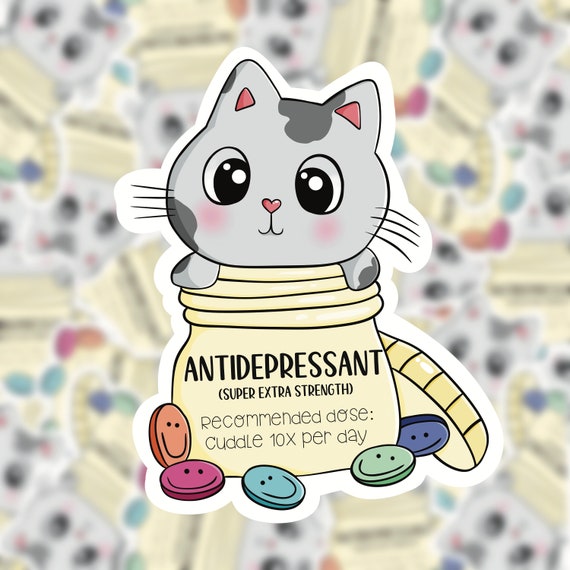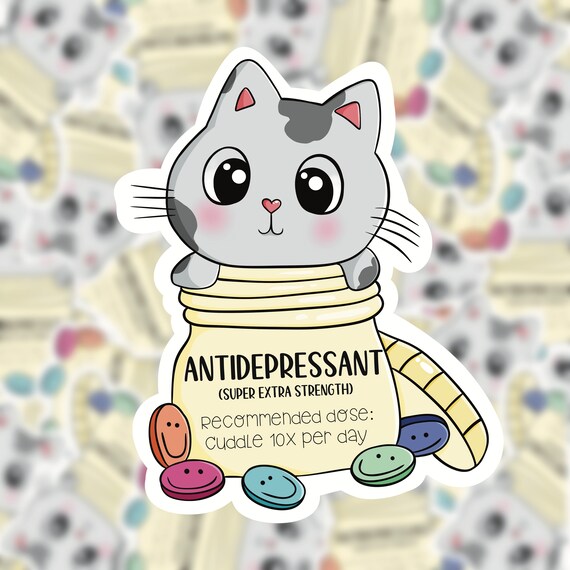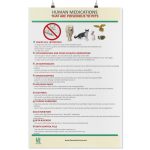Feline friends bring immense joy and companionship to our lives, but did you know that many cats suffer from mental health issues just like humans do? As much as we love our whiskered pals, it’s essential to recognize the signs of depression and anxiety in cats and provide them with the right tools for a happy and healthy life.
A Growing Concern: Feline Mental Health
As more cat owners become aware of their pets’ emotional needs, the demand for effective antidepressant solutions for cats has never been higher. In this blog post, we’ll delve into the world of feline mental health and explore a natural approach to helping your kitty feel more relaxed, confident, and content.
The Impact of Mental Health on Feline Well-being
Just like humans, cats can experience various mental health issues, such as depression, anxiety, and stress. These conditions can manifest in different ways, including changes in appetite, sleep patterns, and social behavior. For instance, a depressed cat might become withdrawn, lose interest in playtime, or develop gastrointestinal problems.
It’s crucial to address these issues promptly, as they can have a significant impact on your cat’s overall well-being and quality of life. By providing the right support and care, you can help your feline friend feel more relaxed and comfortable, which is essential for maintaining a strong bond between you and your pet.

In recognizing the importance of feline mental health, it’s essential to understand the potential triggers and risk factors that can contribute to a cat’s depression or anxiety. Some common causes include:
Feline Mental Health Triggers
Changes in environment or routine, such as moving to a new home or introducing new pets or family members.
Pain or discomfort associated with medical conditions, dental issues, or chronic illnesses.
Lack of social interaction or isolation from other cats or humans.
Changes in diet or eating habits, leading to nutrient deficiencies or digestive problems.
These triggers can have a profound impact on your cat’s mental state, making it essential to address any underlying issues promptly. By providing a stable and comfortable environment, you can help reduce stress and anxiety in your feline friend.
Natural Approaches to Feline Mental Health
When it comes to treating depression and anxiety in cats, many cat owners are turning to natural approaches that prioritize their pet’s well-being. Some effective methods include:
Aromatherapy: Certain essential oils like lavender and chamomile have been shown to have a calming effect on cats.
Pharmacological interventions: Consult with your veterinarian about natural supplements or herbal remedies that can help alleviate symptoms without the use of pharmaceuticals.
Environmental enrichment: Providing stimulating toys, scratching posts, and climbing structures can help reduce stress and boredom in cats.
It’s crucial to consult with your veterinarian before starting any treatment plan for your cat. They will be able to provide personalized guidance based on your pet’s unique needs and health status.
Conclusion
In this blog post, we’ve explored the growing concern of feline mental health and the importance of recognizing the signs of depression and anxiety in cats. By understanding the potential triggers and risk factors, as well as natural approaches to treatment, you can take a proactive role in supporting your cat’s emotional well-being.
Stay tuned for our next blog post, where we’ll delve deeper into the world of feline mental health and provide more tips and advice on how to help your kitty feel relaxed, confident, and content. [1]
Consult with a Medical Professional
Learn more about feline mental health and get personalized advice from our medical experts.
Consult a medical expertIn this final section, we’ll summarize the key points covered so far and provide some parting insights to help you support your cat’s mental well-being.
Key Takeaways
We’ve explored the importance of recognizing signs of depression and anxiety in cats, as well as natural approaches to addressing these issues. Here are the main takeaways:
- Mental health is a growing concern for felines, with symptoms including changes in appetite, sleep patterns, and social behavior.
- Natural antidepressants, such as L-theanine and omega-3 fatty acids, can help alleviate symptoms of depression and anxiety in cats.
- Environmental enrichment, through the use of puzzle toys and interactive games, can stimulate your cat’s mind and reduce stress.
Final Insights
Achieving a healthy mental state for your cat requires patience, understanding, and a willingness to adapt. By recognizing the signs of depression and anxiety in cats, you can take proactive steps to support their emotional well-being. Remember that every cat is unique, so it’s essential to tailor your approach to your individual pet’s needs.
A Satisfying Conclusion
In conclusion, addressing feline mental health issues requires a holistic approach that considers both physical and emotional factors. By incorporating natural antidepressants, environmental enrichment, and patience into your cat’s life, you can help them feel more relaxed, confident, and content. As you embark on this journey to support your cat’s mental well-being, remember the profound impact it will have on your bond and their quality of life. Your feline friend will thank you.
Black beans nutrition fact: Are you a fan of black beans? Learn about the incredible nutritional benefits they offer, from protein-rich to fiber-packed. Get ready to power up your health with this fascinating article!
The treatment cost of hepatitis C: If you or someone you know is struggling with Hepatitis C, finding the right treatment can be daunting. Our expert guide breaks down the costs and options for effective treatment. Explore the possibilities and take control of your health today!



